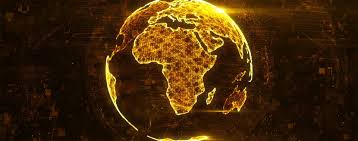Antarctica's Ice Sheets May Have 3,00000 Undiscovered Meteorites, New Study Finds


A new artificial intelligence (AI) program has suggested that there are over 600 locations in Antarctica that might have a treasure trove of undiscovered meteorites. A study published in the journal Science Advances revealed that scientists have developed an AI which has found 600 potentially meteorite-rich locations in the continent. Over the years, Antarctica has been a hot spot of meteorite discovery as nearly two-thirds of all meteorites discovered to date have emerged in this area. Lead study author Veronica Tollenaar, a glaciologist at the Free University of Brussels in Belgium, told Space.com, “We found some unexplored areas with a great potential to find meteorites”.
Current discoveries only make 5-13% of the total: ExpertsDespite recovering over 45,000 meteorites from the region, study experts say that this comprises only 5-13% of the space rocks that might be hidden beneath the ice sheets. “Our calculations suggest that more than 300,000 meteorites are still present at the surface of the ice sheet. The potential remains enormous”, Tollenaar said. The experts are making conclusions based on the AI that was able to correctly identify 83% of the regions currently known to be meteorite-rich ones.
According to the study, most of these potentially meteorite-rich regions are located not far from existing research stations. “By visiting these locations and using new recovery techniques in the field, such as surveys with drones, we are about to enter a new era of Antarctic meteorite recovery missions," Tollenaar told Space.com.
Finding space rocks in Antarctica becomes easy as the continent is covered in snow and the dark-coloured meteorites completely stand out in the white ice sheets. Moreover, 98% of snow-covered Antarctica helps in the preservation of these space rocks for extended periods of time. While the experts are confident about their AI-developed mapping, Tollenaar is aware that the identification of meteorite-rich regions was not 100% and the discoverers might end up disappointed. She, however, added that if nothing, the miscalculations will help in making the AI better for further mapping the region.
Image: Unsplash

 New Zealand
New Zealand Argentina
Argentina  Australia
Australia  Austria
Austria  Brazil
Brazil  Canada
Canada  Germany
Germany  Ireland
Ireland  Italy
Italy  Malaysia
Malaysia  Mexico
Mexico  Poland
Poland  South Africa
South Africa  United Kingdom
United Kingdom  United States
United States 






















